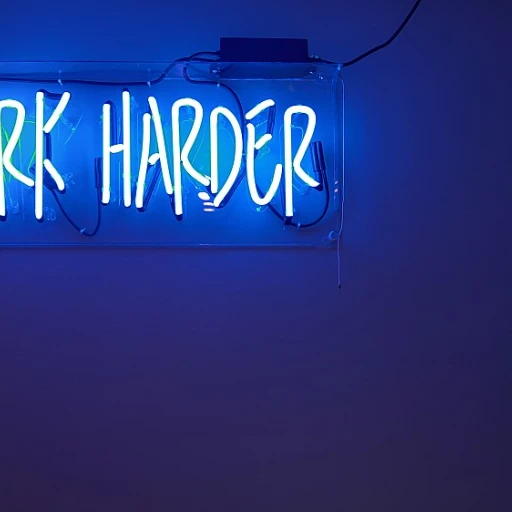
Understanding the workers comp hearing process
What Happens During a Workers’ Compensation Hearing?
When a work injury or illness leads to a dispute over benefits, a workers’ compensation hearing is often scheduled. This process is designed to resolve disagreements between the injured employee and the employer or their insurance company. The hearing is typically overseen by a judge who will review the case, listen to both sides, and make a decision about the claim.
Key Steps in the Compensation Hearing Process
- Filing the Claim: After a work injury, the injured worker files a claim for workers compensation benefits. This claim includes medical records, details about the injury, and information about medical treatment received.
- Pre-Hearing Preparation: Both the injured worker and the employer (often with their lawyer or insurance company representative) gather evidence, such as medical care documentation, work restrictions, and witness statements.
- The Hearing: At the comp hearing, the judge will ask questions to clarify the facts. The injured employee, employer, and sometimes medical experts or doctors may be called to testify about the injury, treatment, and ability to return to work.
- Judge’s Decision: After reviewing the evidence and hearing testimony, the judge will decide if the injured worker will receive benefits, such as medical treatment, wage replacement, or compensation for permanent disability.
Why Understanding the Hearing Process Matters
Knowing what to expect during a compensation hearing helps injured workers and employers prepare for the questions asked and the evidence needed. It also reduces anxiety and confusion, making it easier to focus on presenting the facts of the case. For more information on what employers can request during the claims process, such as doctor's notes after a work absence, it’s important to understand your rights and responsibilities.
Who Is Involved in the Hearing?
- Injured Workers: The person who suffered the work injury or illness and is seeking benefits.
- Employer: The company or organization where the injury occurred, often represented by HR or legal counsel.
- Insurance Company: Handles the claim and may participate in the hearing.
- Judge: Oversees the hearing and makes the final decision.
- Medical Experts: Doctors or specialists may provide testimony about the injury, treatment, and work restrictions.
The hearing process is a critical step in resolving workers compensation claims, ensuring that injured employees receive the benefits and medical care they need, while employers and insurers have a fair opportunity to present their side of the case.
Common workers comp hearing questions you might face
Types of Questions You Can Expect at a Workers Compensation Hearing
When attending a workers compensation hearing, you will face a range of questions from the judge, your employer’s lawyer, and possibly your own legal representative. These questions are designed to clarify the details of your work injury, your medical treatment, and the impact on your job. Understanding the nature of these questions helps you prepare and present your case more effectively.- Details of the Injury: You will be asked to describe how the injury or illness occurred at work. Be prepared to explain the date, time, and specific circumstances of the incident. The judge will want to know if the injury happened while performing your regular job duties.
- Medical Treatment and Records: Questions about your medical care are common. You may need to discuss which doctors you have seen, the treatment you received, and whether you followed medical advice. The judge and lawyers often review your medical records to confirm your statements.
- Work Restrictions and Return to Work: The hearing will cover any work restrictions your doctor has placed on you. You might be asked if you attempted to return to work, and if so, whether your employer accommodated your restrictions.
- Impact on Daily Life: Be ready to answer how the injury has affected your ability to perform your job and daily activities. This can influence the benefits you may receive, including compensation for permanent disability.
- Previous Injuries or Claims: The judge or employer’s lawyer may ask about any prior injuries, claims, or medical conditions. This helps determine if your current injury is related to your work or a pre-existing issue.
- Communication with Employer and Insurance Company: You might be questioned about when and how you reported the injury to your employer, and any interactions you had with the insurance company handling your claim.
- Social Security and Other Benefits: If you are receiving or have applied for social security or other benefits, expect questions about these as they can affect your workers comp benefits.
Why These Questions Matter
The questions asked during a compensation hearing are not just formalities. They help the judge determine the legitimacy of your claim, the extent of your injury, and the benefits you will receive. Honest and detailed answers, supported by medical records and documentation, are crucial for injured workers. For more insights on handling challenging interview questions, check out this guide on navigating peer interview questions with confidence.Preparing for the Hearing
Knowing the types of questions you will face allows you to gather the right information and avoid common mistakes. In the next section, we will discuss practical steps to prepare your answers and present your case confidently.How to prepare your answers for the hearing
Getting Ready to Answer Workers’ Compensation Hearing Questions
Preparing for a workers compensation hearing can feel overwhelming, especially if you are the injured employee. The judge, your employer, the insurance company, and sometimes even your own lawyer will ask questions about your work injury, medical treatment, and job duties. Here are practical steps to help you prepare your answers and present your case clearly.- Review Your Medical Records – Go through your medical records, doctor’s notes, and any documentation about your injury or illness. Make sure you understand your diagnosis, treatment plan, and any work restrictions your doctor has set.
- Know Your Claim Details – Be familiar with your workers comp claim: when the injury happened, how it occurred, and the steps you took to report it. The judge will likely ask about the timeline and your actions after the incident.
- Practice Explaining Your Work Injury – Practice describing your injury or illness in simple terms. Focus on how it happened at work, the impact on your ability to perform your job, and the medical care you have received.
- Prepare for Questions About Returning to Work – Be ready to discuss whether you can return to work, if you have any permanent disability, or if you need ongoing medical treatment. The judge and insurance company may ask about your current work restrictions and future plans.
- Understand the Benefits You Will Receive – Know what benefits you are seeking, such as medical care, wage replacement, or compensation for permanent disability. Be clear about your expectations and what you believe you are entitled to under workers compensation.
- Coordinate With Your Lawyer – If you have a lawyer, discuss the questions you might be asked and how to answer them honestly and confidently. Your lawyer can help you anticipate difficult questions from the employer or insurance company.
Helpful Tips for Answering Effectively
- Be honest and stick to the facts. Avoid exaggerating or minimizing your injury.
- Listen carefully to each question before answering. If you do not understand, ask for clarification.
- Keep your answers brief and focused on the question asked. Do not volunteer extra information unless necessary.
- Bring any supporting documents, such as medical records or work restrictions, to the compensation hearing.
Mistakes to avoid when answering hearing questions
Common Pitfalls When Responding to Compensation Hearing Questions
When you are an injured employee attending a workers compensation hearing, the way you answer questions can significantly impact your case. Here are some mistakes to watch out for, so you can present your claim clearly and accurately.- Providing Incomplete or Vague Answers
Judges and insurance company representatives will ask workers detailed questions about the work injury, medical treatment, and job duties. If you give short or unclear answers, it may seem like you are hiding something or not fully understanding your own case. Always explain your situation as clearly as possible, using specific examples from your medical records or doctor visits. - Guessing or Speculating
If you do not know the answer to a question, say so. Guessing about your injury, treatment, or work restrictions can damage your credibility. For example, if you are unsure about a date or a medical term, it is better to admit it than to provide incorrect information. - Contradicting Medical Records
Your answers should match the information in your medical records and claim documents. If you say something different from what your doctor or employer has reported, the judge may question your honesty. Review your records and claims before the hearing to avoid inconsistencies. - Overstating or Understating Your Injury
Some injured workers worry that being too honest about their recovery or work restrictions will affect their benefits. However, exaggerating or minimizing your injury illness can harm your case. Stick to the facts about your medical care, permanent disability, and ability to return work. - Arguing or Becoming Defensive
Compensation hearings can be stressful, especially if you feel your employer or the insurance company is challenging your claim. Try to remain calm and professional, even if you disagree with the questions asked. Let your lawyer handle any legal arguments.
Tips for Staying Clear and Consistent
- Review your claim and medical records before the hearing.
- Practice answering common questions with your lawyer or a trusted advisor.
- Be honest about your work injury, treatment, and job duties.
- Listen carefully to each question and answer only what is asked.
- Do not be afraid to ask for clarification if you do not understand a question.
Role of HR in supporting employees during hearings
How HR Professionals Guide Injured Workers Through Hearings
Human Resources (HR) plays a critical role when an employee faces a workers compensation hearing. Their involvement can make the process less stressful for the injured worker and ensure that the employer meets all legal and ethical obligations. Here’s how HR typically supports employees during this challenging time:- Providing Clear Information – HR helps explain the workers comp hearing process, including what to expect from the judge, the types of questions asked, and the documentation needed. This guidance helps injured workers understand their rights and responsibilities.
- Coordinating Communication – HR acts as a bridge between the injured employee, the employer, the insurance company, and sometimes the lawyer. They ensure that all parties are updated about the status of the claim, medical treatment, and any work restrictions or return to work plans.
- Assisting With Documentation – HR helps gather and organize medical records, injury reports, and other documents required for the compensation hearing. Accurate records are crucial for answering questions about the injury, medical care, and benefits.
- Ensuring Compliance – HR ensures the employer follows all relevant laws and policies related to workers compensation claims. This includes maintaining confidentiality, respecting work restrictions, and supporting the employee’s medical treatment and recovery.
- Supporting Employee Wellbeing – HR can connect injured workers with resources such as counseling, job accommodations, or information about social security and permanent disability benefits if needed. Their support helps employees focus on recovery and reduces anxiety about the hearing process.
HR’s Role in Answering Hearing Questions
During the compensation hearing, HR may be present to answer questions from the judge or clarify details about the job, injury, or employer’s policies. Their testimony can help establish the facts of the case, such as the nature of the work injury, the employer’s response, and the steps taken to provide medical care or modified duties. HR’s accurate and honest answers are essential for a fair outcome.After the Hearing: Continued Support
Once the hearing concludes, HR continues to assist both the injured employee and the employer. They help interpret the judge’s decision, coordinate any changes to work status or benefits, and ensure a smooth transition if the employee will return to work or needs ongoing medical treatment. HR’s ongoing involvement helps maintain trust and compliance throughout the workers compensation process.What happens after the hearing: next steps and follow-up
What to Expect After the Compensation Hearing
Once the compensation hearing ends, the process does not stop there. The judge will review all the evidence, including medical records, testimony from the injured employee, employer, and doctors, as well as any questions asked during the hearing. The judge’s decision is usually not immediate. It may take several weeks for a written decision to be issued.Receiving the Judge’s Decision
The decision will outline whether the workers comp claim is approved or denied, the amount of benefits the injured worker will receive, and any conditions for returning to work. Both the injured employee and the employer will receive a copy of this decision. If the claim is approved, the insurance company will begin processing payments for medical treatment, lost wages, or permanent disability benefits, depending on the case details.Next Steps for Injured Workers and Employers
- If the claim is approved: The injured worker should follow up with their doctor and continue any recommended medical care or treatment. The employer should coordinate with the employee about work restrictions or a return-to-work plan if possible.
- If the claim is denied: The injured employee has the right to appeal. This usually involves submitting a written request for another hearing or review. Consulting a lawyer experienced in workers compensation cases can help clarify the next steps.
- Ongoing communication: Both parties should keep detailed records of all medical appointments, treatments, and communications with the insurance company. This documentation can be crucial if there are disputes or further questions about the claim.













